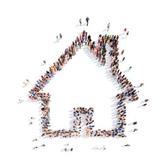Landlords
We use the Devon Minimum Property Standards as a guide to ensuring that the homes our clients move into are safe, adequate and possible to heat adequately. Some of these requirements are legal, others are voluntary; many of the landlords we work with already meet or exceed these standards, and we find most of the landlords we work with are happy to make improvements where necessary.
In some instances, particularly in regard to energy efficiency, there may be relevant grants or schemes to assist landlords with improvements.
Landlords are generally responsible for repairing:
In some instances, particularly in regard to energy efficiency, there may be relevant grants or schemes to assist landlords with improvements.
Landlords are generally responsible for repairing:
- the structure and exterior of the property, for example, the walls, roof, foundations, drains, guttering and external pipes, windows and external doors
- basins, sinks, baths, toilets and their pipework
- water and gas pipes, electrical wiring, water tanks, boilers, radiators, gas fires, fitted electric fires or fitted heaters.
Tenants
Some property problems you may experience as a tenant may include:
If you are experiencing one of these problems, you need to contact your landlord. If you’re on good terms, a telephone call is probably best, but do follow up with a written letter explaining the issue and what you would like to be done. Keep it brief, and keep it polite! Remember, you’re both likely to want the same outcome: keeping the property in good order. Your landlord may not know about any problems, and can only find out if you tell them.
You also have a responsibility to tell them about anything that needs repairing, especially if it may become more serious (and expensive) without intervention.
For more advice, the Citizen’s Advice Bureau has some good guidance on Repairs in Rented Accommodation
- Damp & mould (caused by structural problems or condensation)
- Excessive cold (draughts/poor isulation/inadequate heating)
- Disrepair (something broken that was formerly in good order)
If you are experiencing one of these problems, you need to contact your landlord. If you’re on good terms, a telephone call is probably best, but do follow up with a written letter explaining the issue and what you would like to be done. Keep it brief, and keep it polite! Remember, you’re both likely to want the same outcome: keeping the property in good order. Your landlord may not know about any problems, and can only find out if you tell them.
You also have a responsibility to tell them about anything that needs repairing, especially if it may become more serious (and expensive) without intervention.
For more advice, the Citizen’s Advice Bureau has some good guidance on Repairs in Rented Accommodation
Damp & Mould
Damp & mould are by far the most common of complaints, and if it is structural, will need investigation by the landlord.
In many cases, however, it is caused by condensation: moisture (from cooking, washing etc) inside the building, unable to escape.
This can be remedied by the tenant ensuring adequate ventilation (especially whilst cooking or showering), drying clothes etc outside wherever possible, or in a ventilated room, and other simple actions such as using lids on saucepans when cooking.
Ensuring good airflow where ever possible (e.g in cupboards & wardrobes), and keeping a reasonable degree of background heating will also help. See our Energy Costs section if keeping your home adequately warm is difficult for you financially.
In many cases, however, it is caused by condensation: moisture (from cooking, washing etc) inside the building, unable to escape.
This can be remedied by the tenant ensuring adequate ventilation (especially whilst cooking or showering), drying clothes etc outside wherever possible, or in a ventilated room, and other simple actions such as using lids on saucepans when cooking.
Ensuring good airflow where ever possible (e.g in cupboards & wardrobes), and keeping a reasonable degree of background heating will also help. See our Energy Costs section if keeping your home adequately warm is difficult for you financially.
Local Standards
Many local areas will have their own standards they promote, often supported by local authorities and sometimes also by landlords' associations.



